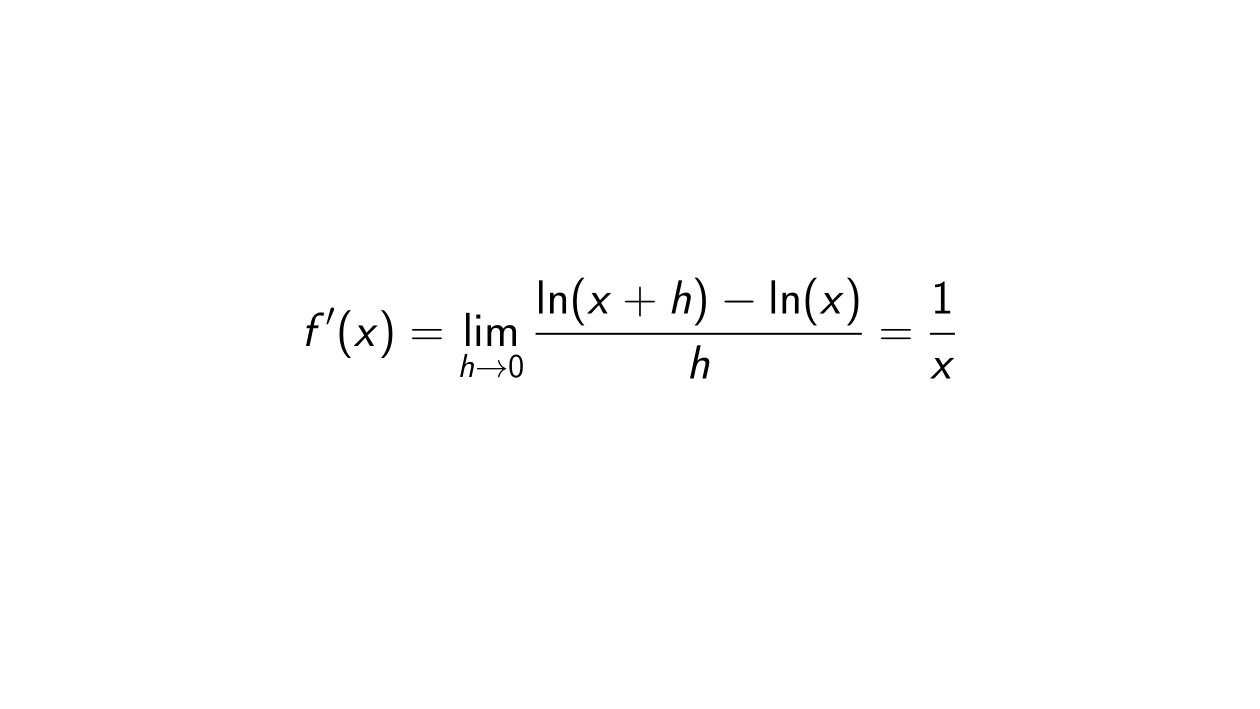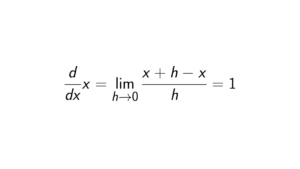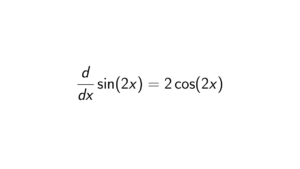Proof. Let f(x) = \ln(x). Then
\begin{align*}
f'(x) &= \lim_{h \rightarrow 0} \frac{f(x + h) - f(x)}{h} \\
&= \lim_{h \rightarrow 0} \frac{\ln(x + h) - \ln(x)}{h} \\
&= \lim_{h \rightarrow 0} \frac{\ln(\frac{x + h}{x})}{h} \\
&= \lim_{h \rightarrow 0} \frac{\ln(1 + \frac{h}{x})}{h}
\end{align*}\begin{align*}
\lim_{h \rightarrow 0} \frac{\frac{1}{x}\ln(1 + \frac{h}{x})}{\frac{1}{x}h} &= \frac{1}{x}\lim_{h \rightarrow 0} \frac{x}{h}\ln(1 + h/x)
\end{align*}\begin{align*}
\frac{1}{x}\lim_{h \rightarrow 0} \ln(1 + h/x)^{\frac{x}{h}} = \frac{1}{x} \ln(\lim_{h \rightarrow 0}(1 + h/x)^{\frac{x}{h}})
\end{align*}\begin{align*}
\frac{1}{x} \ln(e) = \frac{1}{x} \cdot 1 = \frac{1}{x}.
\end{align*}

